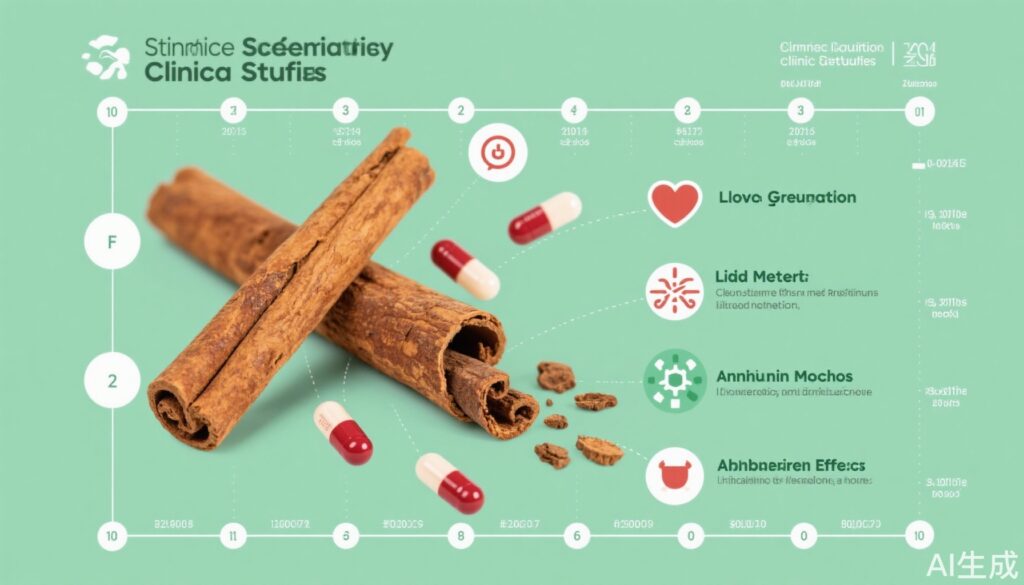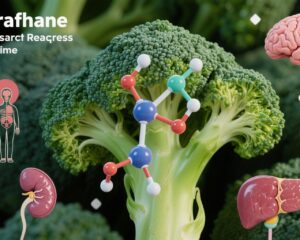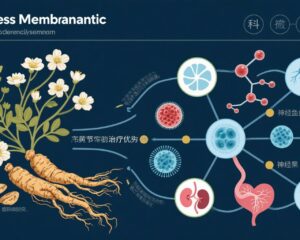Highlights
- Cinnamon supplementation shows consistent glycemic control benefits in type 2 diabetes mellitus (T2DM) and prediabetes with dose-dependent effects.
- Meta-analyses demonstrate improvements in lipid profiles, blood pressure, oxidative stress, and inflammation markers, notably in metabolic disorders and PCOS.
- Emerging evidence supports cinnamon’s positive influence on cognitive function and postmenopausal symptom relief.
- Antimicrobial and mucoprotective activities reveal potential in infectious disease management and gastrointestinal health, expanding cinnamon’s clinical application scope.
Background
Cinnamon, derived from the inner bark of trees in the genus Cinnamomum, has long been esteemed in traditional medicine. Over the past decade, scientific inquiry has increasingly focused on its bioactive compounds—such as cinnamaldehyde, eugenol, and coumarin—and their pharmacological effects. Given the global burden of metabolic disorders, cardiovascular disease, cognitive decline, and infectious diseases, cinnamon’s natural origin, safety profile, and multifaceted biochemical activities render it a compelling candidate for adjunctive therapy. This review synthesizes PubMed-indexed literature from the past 10 years, elucidating cinnamon’s therapeutic potentials and translational relevance across a range of clinical conditions.
Key Content
1. Chronological and Thematic Synthesis of Research Evidence
1.1 Glycemic Control and Diabetes Mellitus
Numerous randomized controlled trials (RCTs), systematic reviews, and meta-analyses published within the last decade have investigated cinnamon’s efficacy in T2DM and prediabetes. A comprehensive 2024 meta-analysis of 24 RCTs (PMID: 37818728) reported statistically significant reductions in fasting blood sugar (SMD -1.32, p<0.001), HOMA-IR (-1.32, p<0.001), and HbA1c (-0.67, p=0.011) following cinnamon supplementation. Dose-response analysis revealed a hypoglycemic effect with cinnamon doses ≤1200 mg (Nutrients 2023, PMID: 37447309). These studies collectively support cinnamon's role as a modest but beneficial adjunct to pharmacologic therapy for glycemic management.
A randomized crossover clinical trial (PLoS One 2024, PMID: 39383145) highlighted that raw cinnamon powder ingested as a beverage significantly attenuates postprandial glycemic spikes in T2DM patients, an effect diminished when administered in hard gelatin capsules. This finding emphasizes the importance of administration form and timing, suggesting cinnamon’s carbohydrate-digesting enzyme inhibitory (alpha-amylase/-glucosidase) activity underlies its antihyperglycemic mechanism.
In individuals with obesity and prediabetes, a 10-week double-blind, crossover RCT (Am J Clin Nutr 2024, PMID: 38290699) demonstrated that 4 g/day cinnamon reduced 24-hour glucose concentrations, peak glucose levels, and improved insulinotropic polypeptide secretion without adverse digestive symptoms.
1.2 Lipid Profile, Blood Pressure, and Inflammation in Metabolic Disorders
An umbrella review (Nutr Metab Cardiovasc Dis 2024, PMID: 39299867) synthesized meta-analyses comprising RCTs on cinnamon’s impact on blood pressure (BP), oxidative stress, and inflammatory markers. Cinnamon intake yielded significant systolic (-2.36 mmHg) and diastolic BP reductions (-1.65 mmHg), increased total antioxidant capacity (TAC), and decreased interleukin-6 (IL-6) levels, indicating beneficial cardiometabolic modulation, although effects on CRP and malondialdehyde (MDA) were nonsignificant.
Similarly, an umbrella meta-analysis (Nutr Metab Cardiovasc Dis 2023, PMID: 37500345) examined cinnamon’s effects on lipid profiles in adults, particularly those with T2DM or polycystic ovary syndrome (PCOS). Results revealed significant decreases in total cholesterol (TC) and low-density lipoprotein cholesterol (LDL-C), and increases in high-density lipoprotein cholesterol (HDL-C). However, triglyceride (TG) changes were not significant. Notably, these benefits align with analyses in women with PCOS, where cinnamon supplementation reduced body weight, fasting blood sugar, insulin resistance (HOMA-IR), LDL, and total cholesterol (Eur J Obstet Gynecol Reprod Biol 2024, PMID: 39053085).
A 12-week double-blind RCT (Nutrients 2024, PMID: 38892617) involving subjects at risk of metabolic syndrome reported that 3 g/day cinnamon intake, alongside other spices, significantly improved fasting glucose, HbA1c, LDL, and total cholesterol compared to placebo.
1.3 Cognitive Function and Neuroprotection
A systematic review encompassing 40 studies, including 33 in vivo, 5 in vitro, and 2 clinical trials (Nutr Neurosci 2024, PMID: 36652384) assessed cinnamon’s effects on memory and learning. Preclinical data suggest cinnamon bioactives such as cinnamaldehyde, eugenol, and cinnamic acid reduce tau aggregation and amyloid-beta toxicity, promoting neuronal viability. Among clinical studies, one demonstrated cognitive improvement, while another showed no significant effects, indicating the need for further high-quality clinical trials.
1.4 Gastrointestinal Health and Infectious Disease Applications
A Phase III RCT (Medicine (Baltimore) 2023, PMID: 38065906) evaluated CKD-495, a mucoprotective agent with Cinnamomum cassia extract, in acute and chronic gastritis. The intervention showed superior erosion healing rates and symptom improvement over a standard herbal regimen (Artemisiae argyi folium) with excellent safety, suggesting cinnamon derivatives’ therapeutic potential in mucosal protection.
Cinnamon water extract improved diarrhea symptoms, enhanced gut microbial alpha diversity, and increased beneficial strains (e.g., Bifidobacterium longum ATCC 55813) in an 8-week RCT (Food Funct 2023, PMID: 36655542), implicating modulation of gut environment and metabolites as mechanisms.
Furthermore, antimicrobial meta-analytical data (Compr Rev Food Sci Food Saf 2023, PMID: 37615998) reveal that cinnamon essential oils (EOs) exhibit noteworthy activity against biofilms formed by foodborne pathogens such as Bacillus cereus and Salmonella spp., outperforming several standard antimicrobials in vitro.
Antiviral potential has also been noted; a systematic review of medicinal plants with antiviral activity cultivated in Egypt (Altern Ther Health Med 2024, PMID: 39110055) lists Cinnamomum verum among species exhibiting efficacy against SARS-CoV-2, suggesting potential complementary roles in viral disease management.
1.5 Other Clinical Indications
In rheumatoid arthritis, dietary polyphenols including cinnamon extract showed potential in reducing disease activity scores and inflammatory markers without increasing adverse events (Front Immunol 2023, PMID: 37033930). This underlines cinnamon’s anti-inflammatory capacity beyond metabolic conditions.
In postmenopausal women, a triple-blind RCT (Menopause 2024, PMID: 39579099) demonstrated that 1 g/day cinnamon capsules for 2 months significantly decreased menopause-related symptom severity, particularly psychological symptoms, highlighting an emerging role in women’s health.
2. Mechanistic Insights and Safety Profile
Cinnamon’s therapeutic effects are attributed to its polyphenols and bioactive volatile oils, which confer antioxidant, anti-inflammatory, insulin-sensitizing, and enzyme inhibitory properties. Its inhibition of carbohydrate-digesting enzymes like alpha-amylase and alpha-glucosidase parallels acarbose-like antihyperglycemic effects, facilitating modulation of postprandial glycemia.
Cinnamon also exerts lipid-lowering effects possibly through upregulation of lipid metabolism pathways and anti-inflammatory modulation, as reflected by decreased IL-6 levels.
Preclinical models implicate cinnamon’s constituents in neuroprotection via mitigation of amyloid-beta and tau pathology, promoting neuronal survival.
Importantly, human trials report a robust safety profile with minimal adverse events across diverse formulations and doses, supporting its use as a dietary adjunct.
Expert Commentary
The amassed evidence positions cinnamon as a promising adjunct in metabolic syndrome management, particularly T2DM and PCOS, balancing efficacy with safety. However, heterogeneity in study designs, cinnamon species, dosages, and administration forms presents challenges to standardized recommendations.
Cinnamon’s effects on glycemic control, while modest, are clinically meaningful, especially considering its low cost and accessibility. Its influence on lipid profiles and inflammatory markers further endorses its cardiometabolic benefits.
Emerging cognitive and gastrointestinal indications invite further exploration into its neuroprotective and mucosal healing potentials. Antimicrobial and antiviral effects underscore cinnamon’s versatility but remain largely preclinical, necessitating well-designed clinical trials.
Limitations include variability in bioactive compound content contingent on cinnamon species (e.g., Cinnamomum verum vs. Cinnamomum cassia) and extraction methods, affecting bioavailability and efficacy. Additionally, future studies should clarify optimal dosing regimens, delivery methods, and long-term safety.
Integrating cinnamon into clinical practice as an adjunct requires pragmatic clinical guidelines supported by further high-quality, large-scale RCTs.
Conclusion
Over the past decade, research has elucidated diverse therapeutic potentials of cinnamon and its extracts, especially in metabolic disease mitigation, cardiovascular risk reduction, cognitive function enhancement, and gastrointestinal health. Evidence supports cinnamon’s adjunctive role in T2DM and PCOS to improve glycemic and lipid parameters with a favorable safety profile. Novel applications in neuroprotection, antiviral, and antimicrobial therapies represent promising fronts warranting further rigorous clinical evaluation. Standardization of cinnamon preparations and optimized clinical protocols remain key future directions to harness its full therapeutic potential.
References
- Afshari AR, et al. Cinnamon potential in alleviating early postmenopause symptoms: a randomized clinical trial. Menopause. 2024;31(12):1078-1084. doi:10.1097/GME.0000000000002444. PMID: 39579099
- Hashemi R, et al. Effect of cinnamon supplementation on blood pressure, oxidative stress, and inflammatory biomarkers in adults: An umbrella review. Nutr Metab Cardiovasc Dis. 2024;34(12):2659-2668. doi:10.1016/j.numecd.2024.08.009. PMID: 39299867
- de Araujo LS, et al. Suppression of the postprandial hyperglycemia in patients with type 2 diabetes by a raw medicinal herb powder. PLoS One. 2024;19(10):e0311501. doi:10.1371/journal.pone.0311501. PMID: 39383145
- Bahmani F, et al. Effect of cinnamon as a Chinese herbal medicine on markers of cardiovascular risk in women with polycystic ovary syndrome: systematic review and meta-analysis. Eur J Obstet Gynecol Reprod Biol. 2024;300:253-261. doi:10.1016/j.ejogrb.2024.07.032. PMID: 39053085
- Ahmad S, et al. A Systematic Review Evaluating Cinnamon’s Effects on Glucose Utilizing a Ranking System. J Med Food. 2024;27(9):814-823. doi:10.1089/jmf.2023.0277. PMID: 38466959
- Rashad A, et al. Medicinal Plants Cultivated in Egypt with Antiviral Potential: A Systematic Review. Altern Ther Health Med. 2024;30(8):43-51. PMID: 39110055
- Ferguson LK, et al. The Effect of Therapeutic Doses of Culinary Spices in Metabolic Syndrome: A Randomized Controlled Trial. Nutrients. 2024;16(11):1685. doi:10.3390/nu16111685. PMID: 38892617
- Hu Y, et al. Effect of cinnamon spice on continuously monitored glycemic response in adults with prediabetes. Am J Clin Nutr. 2024;119(3):649-657. doi:10.1016/j.ajcnut.2024.01.008. PMID: 38290699
- Kim KJ, et al. Efficacy and safety of CKD-495 in acute and chronic gastritis: phase III trial. Medicine (Baltimore). 2023;102(49):e35926. doi:10.1097/MD.0000000000035926. PMID: 38065906
- Salehi B, et al. In vitro antimicrobial activity of extracts and essential oils of Cinnamomum spp. against foodborne pathogens: meta-analysis. Compr Rev Food Sci Food Saf. 2023;22(6):4516-4536. doi:10.1111/1541-4337.13232. PMID: 37615998
- Germano RR, et al. Effectiveness of cinnamon in lipid reduction in people with diabetes: RCT. Rev Gaucha Enferm. 2023;44:e20230051. doi:10.1590/1983-1447.2023.20230051.en. PMID: 37909519
- Mansour MB, et al. The effect of cinnamon consumption on lipid profile, oxidative stress, and inflammation biomarkers: umbrella meta-analysis. Nutr Metab Cardiovasc Dis. 2023;33(10):1821-1835. doi:10.1016/j.numecd.2023.03.010. PMID: 37500345
- He H, et al. The Effect of Cinnamon on Glycolipid Metabolism: Dose-Response Meta-Analysis. Nutrients. 2023;15(13):2983. doi:10.3390/nu15132983. PMID: 37447309
- Moraes VA Jr, et al. Effect on arterial stiffness and endothelial dysfunction in type 2 diabetes: RCT. J Med Food. 2023;26(6):428-434. doi:10.1089/jmf.2022.0089. PMID: 37262194
- Yu C, et al. Efficacy and safety of dietary polyphenols in rheumatoid arthritis: systematic review and meta-analysis. Front Immunol. 2023;14:1024120. doi:10.3389/fimmu.2023.1024120. PMID: 37033930
- Hosono A, et al. Cinnamon water extract improves diarrhea symptoms by changing the gut environment: RCT. Food Funct. 2023;14(3):1520-1529. doi:10.1039/d2fo01835g. PMID: 36655542


